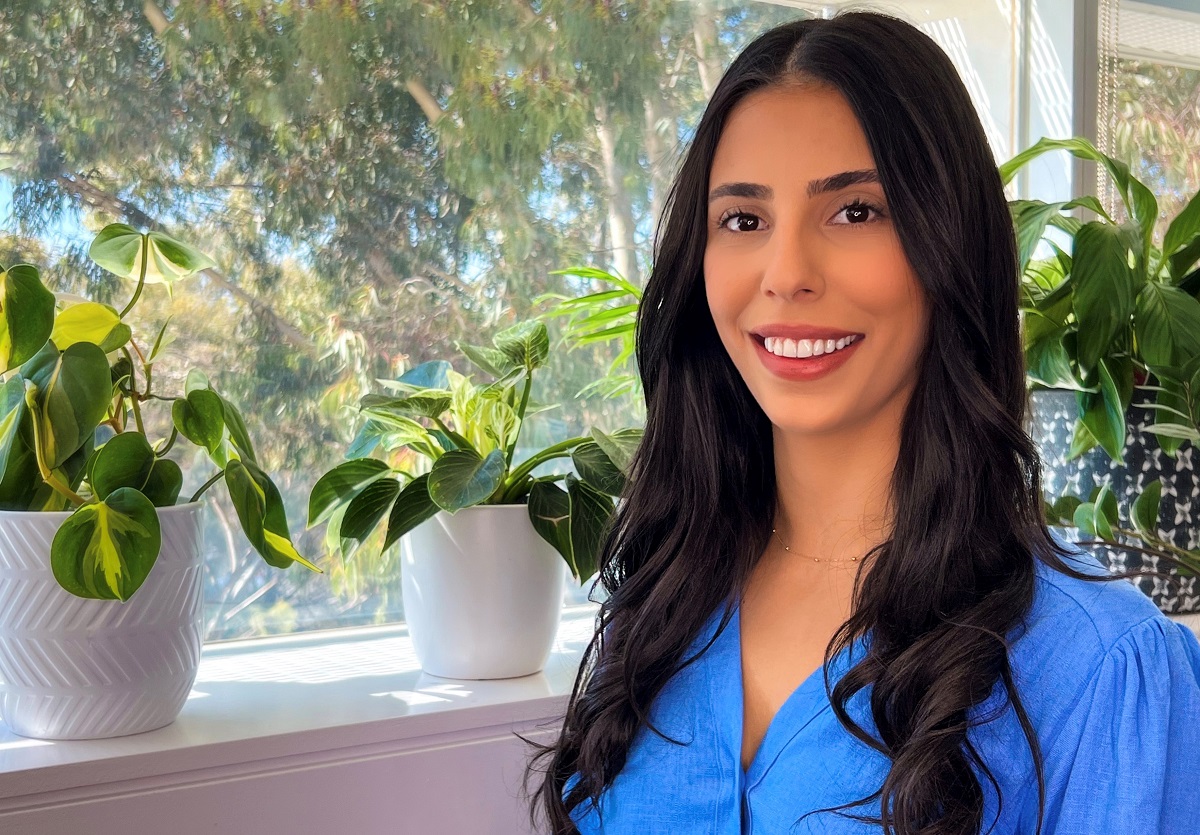
Recently in the news for her research into how mothers can play a role in shaping their daughter’s body image, Melanie Deek tells us how she got into body image research, and explains her hectic life as a PhD student.
What is your role here at Flinders?
My journey at Flinders University began in 2016 when I embarked on my Bachelor of Psychology (Honours) degree. Fast forward seven years, and I’m still here! Currently, I’m in my third year of pursuing a PhD in Clinical Psychology while also being part of the academic community in the College of Education Psychology and Social Work. In addition to my doctoral research, I’ve recently taken on a new role as an Associate Lecturer in Mental Health and Wellbeing. I’m excited to be part of an innovative course program that is designed to support the mental health and wellbeing of workplaces and communities. As a psychologist, it is incredibly rewarding to work with leaders from diverse backgrounds and help them lead the way in creating mentally healthy workplaces and communities.
Tell us about your research.
My research interest centres on eating behaviour and body image in young women. In my PhD research, I investigate the impact of female familial sociocultural influences, with a specific focus on mothers and sisters, on the body image and eating behaviours of young women in both Australia and the Middle-East. Our recent findings suggest that mothers play a significant role in shaping the body image and eating behaviours of their daughters – and to a lesser extent, sisters do too. Notably, we’ve found that when mothers and sisters engage in ‘fat talk’ or exhibit pressures to meet appearance-related societal ideals, it can contribute to negative body image and eating behaviours in young women across cultures.
The research highlights the importance of fostering a supportive family home environment, providing a refuge from media and peer pressures. It also acknowledges the challenges that parents, and particularly mothers, face in addressing these issues. Ultimately, my research aims to shed light on the influence of family dynamics in this context, and to promote healthier and more positive relationships with body image and eating behaviours in young women. I’m very thankful for the guidance and support of my wonderful supervisors, Professor Eva Kemps and Associate Professor Ivanka Prichard.
What piqued your interest in this area?
Growing up, I was incredibly fortunate to have a supportive environment that encouraged me to pursue my passions, particularly to advocate for women. This commitment has remained a guiding influence in both my academic and personal journey. My interest in this research area was further kindled through my work as a psychologist, particularly with children and young people. I’ve seen firsthand how concerns about body image and disordered eating impact the emotional well-being of many young women. These experiences sparked my own interest in this field, driving me to explore the underlying factors behind these concerns.
Additionally, as someone from a different cultural background, I noticed that clinical interventions often lean towards the Western experience, lacking culturally tailored approaches. This realisation further highlighted the importance of my research, particularly extending it to Middle-Eastern cultures and family units.
I’ve also come to understand the value of a comprehensive approach that recognises children and young people do not face mental health concerns in isolation. It calls for a collaborative, family-centred perspective. Consequently, the relationship between mothers, daughters and sisters in this context has motivated my efforts to better understand and address these nuances. My goal is to foster a healthier and more positive environment for young women as they navigate the challenges of body image and eating behaviour concerns in today’s society.
What is your favourite thing about your work?
What I value most about my academic and doctoral roles at Flinders University is the opportunity to conduct meaningful research and collaborate with colleagues from diverse fields. I find it particularly rewarding to apply findings from my research to enhance my clinical practice and impart this knowledge in my teaching.
How do you like to spend your spare time?
I enjoy reading, beach walks, spending time with loved ones and traveling when I can. These are my little escapes from the whirlwind of my PhD, academic role and psychology work. Plus, I’m grateful to do this on Flinders University’s beautiful campus.

